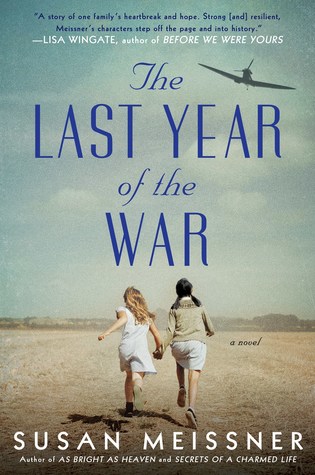Elise Sontag, the American-born daughter of German immigrants, has been raised in Iowa. She is peripherally aware of the war, but doesn’t give it much thought until her father is arrested on suspicion (based on circumstantial evidence) that he’s a Nazi sympathizer. Although he’s innocent, the country is looking for people to blame for the tragedy of Pearl Harbor and the U.S.’s entry into the war. So, the family is sent to an internment camp in Texas, where, separated from everything that’s familiar and living under armed guard, Elise begins to lose her identity as an American. When she meets fellow internee Mariko Inoue, a Japanese-American teen from Los Angeles, she finally has a friend who she can compare stories with and plan a future together in New York City when they both turn 18. Unfortunately, neither anticipates that their families will be repatriated to their parents’ native countries, leaving behind everything they know and facing great danger as the Allies advance and the war winds down. Will they survive the war and, if so, will they ever make it back home?
Unlike Susan Meissner’s three other 5* books I’ve read (As Bright as Heaven, Secrets of a Charmed Life, and A Fall of Marigolds), this one was a disappointment. The premise was intriguing, but the execution was too much narrative and too little dialogue. It read more like a history book than historical fiction and, as such, characters weren’t well-developed and the emotions felt muted. It is a first-person narrative from Elise’s point of view as an old woman with worsening Alzheimer’s, so the focus is on herself with very little of Mariko’s story since she was unaware of what happened to her friend after the war. Meissner clearly did her research and, for those not familiar with the history, it is interesting to learn of the fate of German Americans during WWII and the depiction of life and death in Germany near the end of the war. It is also surprising to learn that prejudice amongst internees was just as fierce as it was outside the barbed wire fences. Unfortunately, the descriptive narrative bogged down the story and, without Mariko’s backstory, the brief reunion of the two friends after many decades didn’t make much sense or pack the emotional wallop one would expect. Overall, not a bad story, but not on a par with her other novels.
I received a complimentary ARC of this book from Berkley Publishing Group through NetGalley in exchange for an honest review. Opinions expressed are completely my own.

No comments:
Post a Comment